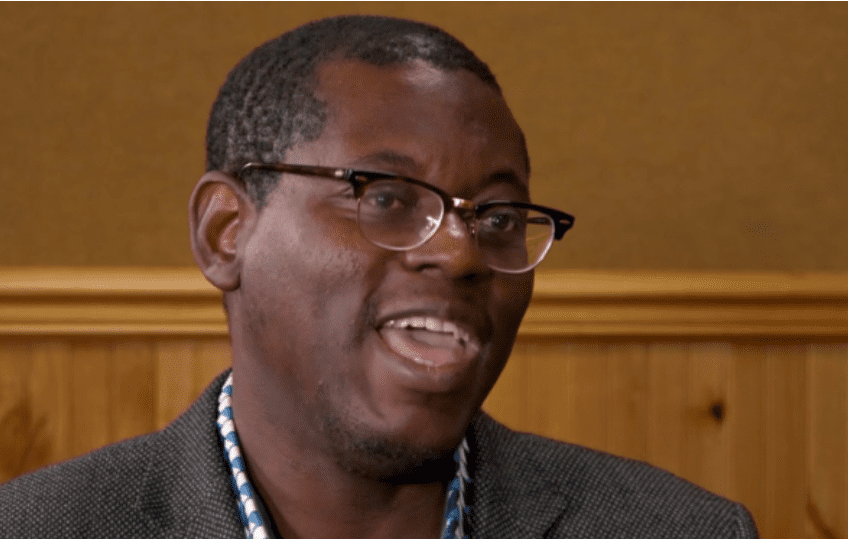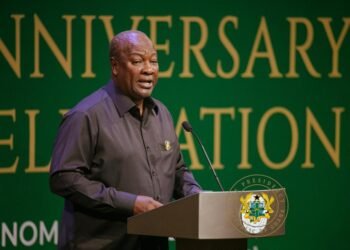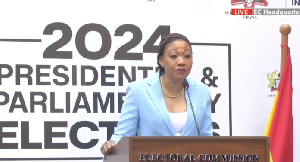In a thought-provoking message addressed to middle-class Ghanaians, Bright Simons, Honorary Vice President of IMANI Centre for Policy and Education, has urged them to seize the opportunity amidst the ongoing crisis the country is going through and demand for structural reforms.
In his statement, Bright Simons expressed deep concerns about the middle-class silence over Ghana’s recent economic and governance challenges, highlighting missed opportunities for long-lasting structural change that could benefit the country.
“Dear Middle-Class Ghanaians, You woke up one morning in 2022 to find out that govt bonds that you thought were ‘risk-free’ are anything but. You joined the uproar and then moved on. You woke up one day in 2024 to learn that pipe water you thought was cleaner than your village’s stream is actually full of poison. You’ve joined the uproar. And waiting to move on”.
Bright Simons, Honorary Vice President of IMANI Centre for Policy and Education
In expressing his frustration, Bright Simons bemoaned the middle-class failure to take the necessary steps to demand systemic change, instead moving on from each crisis without achieving anything tangible.
“You’re about to waste a second crisis in just two years?” Bright Simons asked rhetorically, framing the moment as a critical juncture for Ghanaians to reflect on their collective inaction.
International Examples: Crisis as a Catalyst for Change
In his message, Bright Simons urged Ghanaians to learn from other countries that have turned their crises into opportunities for reform.
He pointed to Jamaica, which after defaulting on its debt, established a truly independent fiscal council to prevent future financial mismanagement.
Similarly, Bright Simons indicated that Sri Lanka is also recovering from a debt crisis, and is making strides toward fiscal reform.
Additionally, the IMANI’s Honorary Vice President and seasoned Policy Analyst indicated that Kenya, following a public outcry over tax increases, has managed to create a finance ministry with near-bipartisan support—a rare feat in the polarized landscape of African politics.
In stark contrast, Bright Simons lamented, asserting that Ghana has failed to achieve any such transformative outcomes from its twin crises.
“What has Ghana got out of its twin crises so far? Nothing. Nothing durable. No structural change,” he noted, underscoring his belief that the country is missing out on opportunities for lasting improvements in governance, transparency, and accountability.
The Role of the Middle Class: Class Duty and Generational Responsibility
Bright Simons placed much of the blame for this stagnation squarely on the shoulders of Ghana’s middle class, a group he believes has the power to drive reform but lacks the will to do so.
According to Bright Simons, the middle class holds a unique position in society—they possess the financial resources, education, and influence to demand accountability and drive political change.
Yet, Bright Simons noted that the middle class in Ghana often fall short in exercising this power, opting instead for complacency and a return to the status quo after the initial shock of each crisis fades.
This apathy, Bright Simons argued, has led to a dangerous cycle in which the government is not held accountable for mismanagement or corruption, and meaningful reforms are continually postponed.
Without sustained pressure from the middle class, Bright Simons warned, Ghana risks repeating the same mistakes and failing to secure a better future for the next generation.
Bright Simons’ message serves as a wake-up call for Ghanaians, particularly the middle class, to recognize the potential for crisis to catalyze positive change.
Drawing on examples from other nations, he emphasized that crises should not be wasted but instead used as opportunities to push for reforms that will have long-lasting effects.
Bright Simons’ call to action is both a challenge and a reminder that a crisis, as disruptive as it may be, can be a powerful moment for reform—if only the people will seize it.
“A crisis is too precious a thing to waste,” he concluded, urging Ghanaians to ensure that the next one is not squandered.
READ ALSO: GSE Market Indices Flat Despite Strong Trading Session Led by MTN Ghana





















